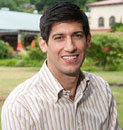 One of the most important life skills you can teach your child is how to save or, more specifically, why it’s important to save. My parents would often bring me to the bank as a small child and I observed my mother writing and cashing checks, depositing money, etc. By the time I was 7 or 8 my parents told me about a little blue passbook they had opened for me when I was born. The passbook (or savings account) contained some regular deposits and a healthy amount of money. I had no sense of the value of the account or what the cash really represented, but I do remember my parents telling me:
One of the most important life skills you can teach your child is how to save or, more specifically, why it’s important to save. My parents would often bring me to the bank as a small child and I observed my mother writing and cashing checks, depositing money, etc. By the time I was 7 or 8 my parents told me about a little blue passbook they had opened for me when I was born. The passbook (or savings account) contained some regular deposits and a healthy amount of money. I had no sense of the value of the account or what the cash really represented, but I do remember my parents telling me:
– This is where you will (not can) save any money you should come across (birthday, holiday, etc.).
– Once you put money into the little blue book you really do not want to take it out (unless you need something).
– The bank will give you some money in return for keeping a little blue book full of money.
The lesson above was very simplistic, namely, that savings is good and should be taken seriously. Beyond setting up a savings account for me, my parents also exposed me to their financial goings-on from a very early age (I knew for example how much my father made via his paycheck, what our tenants would pay in rent each month, and how much my dad would collect for small handy-man type projects from folks on our block). My parents hid nothing about our financial life or status, so I was “in the know” from a very early age.
So, when beginning your child’s fiscal eduction you want to make sure you do the following:
– Set up a savings account and describe what it is meant for and how you make regular deposits.
– Expose your child to every inch of your family’s financial life (in a sense treat the child as an adult and describe how much money the family makes <and the different sources of money>, what the family does with money, and what money can and cannot provide).
I know of some families that never discuss money matters and this can be potentially dangerous for a child or even adults in the family. Money is not a dirty word nor should parents treat it as formal topic only open to adults. The sooner a child feels comfortable dealing with money the quicker he/she can begin to see the value in what it can and cannot provide an individual (for example, security versus happiness).


These are some great tips! I agree that it’s important to begin talking to children about money, saving, security, etc., at a very early age so it gets ingrained into their thinking and habits. I’m not sure I agree that you should tell your kids how much money your family makes — after all, it’s tough for kids to keep a secret sometimes, and you don’t want this to become common knowledge in the neighborhood or at your kids’ school! — but the rest of your tips are good advice for parents.
Hi Susan,
Many thanks for the comment. I remember cringing a little bit when I wrote the “tell your kids about your income” line but I decided to keep it in nonetheless.
I suppose parents know their children best and can predict whether their child may leak sensitive finance info to their 1st grade class, for example. :- ) It’s also important to judge your child and figure out if they are mature enough to handle all of the money talk I suggested in my entry. Both my parents are immigrants and there was an expectation that I (along with my sister) would help them figure out money matters and everything else the U.S. was throwing at them. As a result, our childhood was probably a little bid different than most kids being raised today.
Best,
Vince
Vince, great article! My parents did a great job with this as well. I remember my parents sitting me down numerous times to talk about finances and how to balance a check book. They gave me a check book and an account at a young age and I had to “pay” for things out of the account. Instead of writing things out to the store though I would write it out to my dad so he could check to make sure everything was correct. He just wanted me to get used to it and have the extra practice. It was very helpful. It is so important to share these values with children at a young age. They can understand a lot more than people give them credit for.